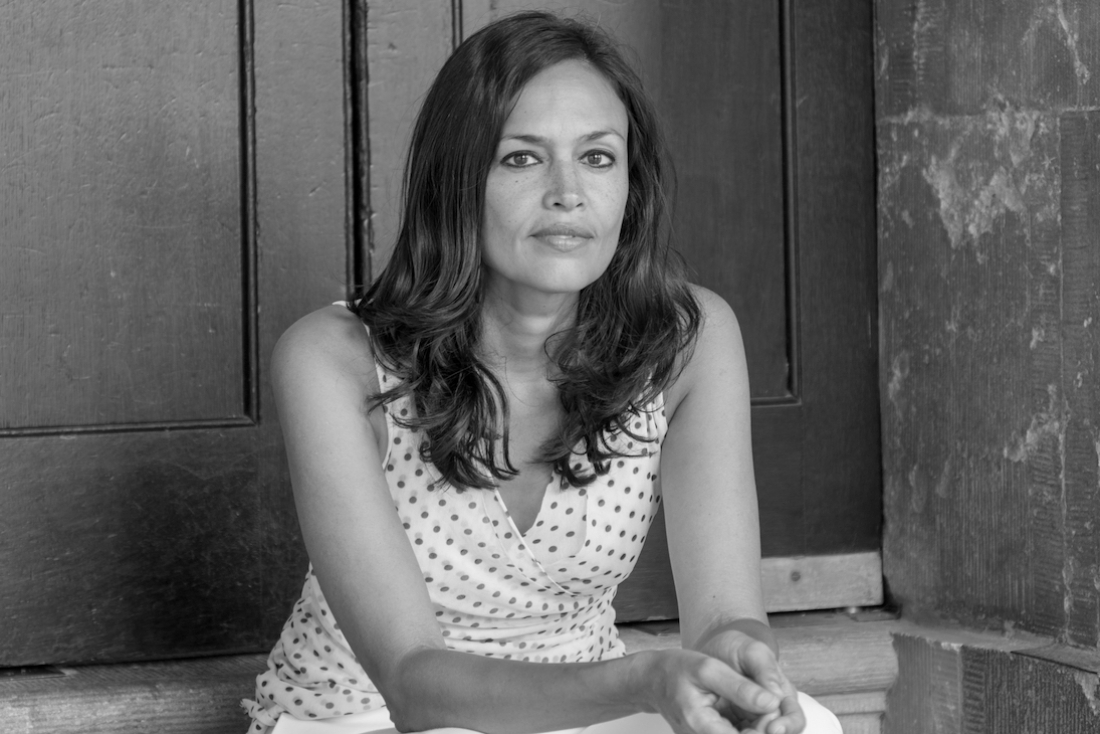
Photograph by: Jonathan Self

Photograph by: Jonathan Self
We revisit our conversation with the acclaimed poet and author as her book, Small Days and Nights, recently got long-listed for the Royal Society of Literature's Ondaatje Prize 2020.
You return to prose after a long time with Small Days and Nights. Was it a challenge?
After The Pleasure Seekers in 2010, I published a novella [Fountainville] and two collections of poetry, so I see that as being gloriously productive. I don’t discriminate between prose and poetry as long as I’m writing.
What inspired this book?
As the title suggests, it’s an investigation into the small – the unexamined. I moved from the city to a coastal village about eight years ago, and so the landscape of that place has permeated the book. I wanted to understand whether a woman in India could live in that kind of isolation. What would be the nature of her fear, her desire? How would it feel to live so far away from the glittering city and all that promise of life and vitality? What are the parameters of loneliness and what are the ways in which we can transcend that?
What is at its core?
It’s a story about sisters, family secrets, a complicated inheritance and the difficulty for a woman in contemporary India to navigate loneliness and isolation, ultimately suggesting alternate ways of family, love, and a kind of redemption. [Lots of dogs were involved in the making of this novel].
Tell me how you found and built your characters.
Because I loved the characters of my first novel so much, I wanted to have them slightly muddier this time around. The nature of this novel is claustrophobic in some ways, and none of the characters are really above reproach. The Bay of Bengal is also a kind of character – as moody and whimsical and beautiful as I’d hope the other characters are. Many of them were dreamed up while walking along the ocean everyday.
You have lived long in Paramankeni and it becomes the universe of your story. Tell me about your relationship with the place; how it has shaped you into the person and the writer that you are, today? Can places be the creators of stories?
I’ve always wanted to live by the sea – and when I moved to Paramankeni eight years ago, it transformed my life. There was the isolation, but it was also actual coastal living – everything I thought about death and life changed. The whole relationship to mortality and your place in the world. The attention to nature, to seasons, to insects. So this novel springs from that specific landscape, and of course, it’s also about what happens when an outsider enters that landscape. All the tension of the novel is contained in place. So yes, I think places can be creators of stories.
One anecdote from the birthing of this book that forever remains special.
I remember meeting a man at the Neemrana Hotel in Tranquebar, a depressed Italian man who hated being in India, whose name was Giacinto. My husband and I had been watching him all week, eating his food morosely in the restaurant. We were the only guests there. We speculated on his nationality and finally my husband spoke to him and realised that he too was an Italian. I hovered on the edge of this conversation and even though I didn’t understand everything that was being said, it was evident this Giacinto despised being in India [such a contrast to my husband’s experience]. I knew I was going to co-opt him right away and he was in fact, the first character of my novel.
How important does travel become for a writer?
It depends what we define as travel. When I’m at the beach for long stretches of time, movement is very restricted. I don’t leave the compound unless I’ve run out of food. So travel can then mean leaving the house, taking the path down to the gate, stepping onto the beach and back again. Sometimes, even that feels too much. But travel in the sense of planes, trains, automobiles – I’ve often tended to move for work, rather than for voyeuristic pleasure, and I’ve found that the most fulfilling journeys have been those ones. But it’s really displacement that we seek when we travel. To be outside of ourselves, and I think there are many experiences besides travel that can offer that.
For how long was this book in the works?
Some years. It occupied a vague dreamy space for a few years and actual writing another two, I think.
Can you take me behind your creative process?
Much of it depends on creating time and space, and I have only just understood the necessary balance I need to make this happen. Mostly I’m saying yes to things I shouldn’t be saying yes to because life can be so alluring, so I’m trying to break that habit because for me to work it’s quite simple: I need to be still, to eat at regular intervals, to sleep bountifully, to walk a few hours a day [or some physical exercise] and to read.
You’re undertaking a lot of interesting and inspiring projects…what does 2019 look like?
I’ve just started teaching at NYU Abu Dhabi, so 2019 so far has been far more regimented than previous years. I’m working on a performance piece to accompany the novel – let’s see how it goes. And working on new poems.
Text Soumya Mukerji